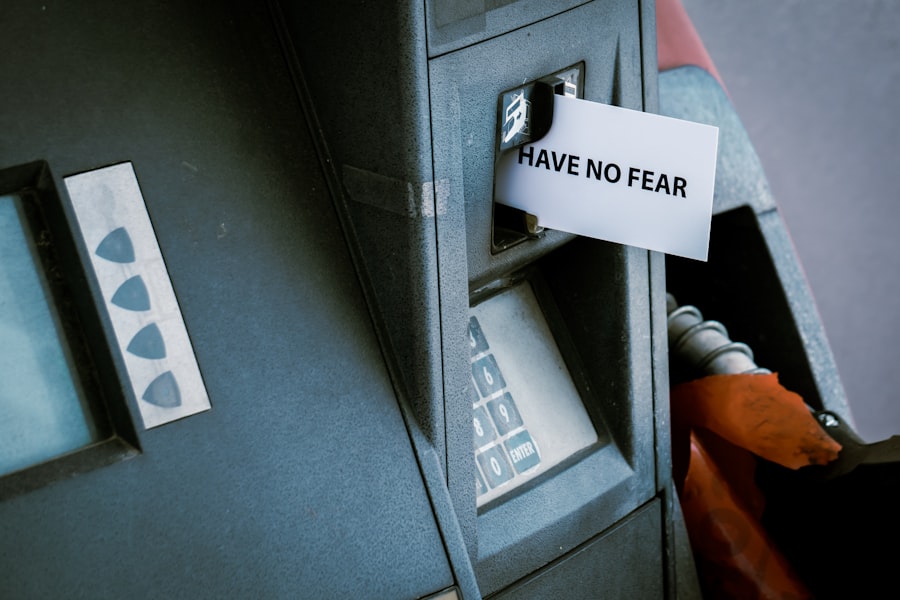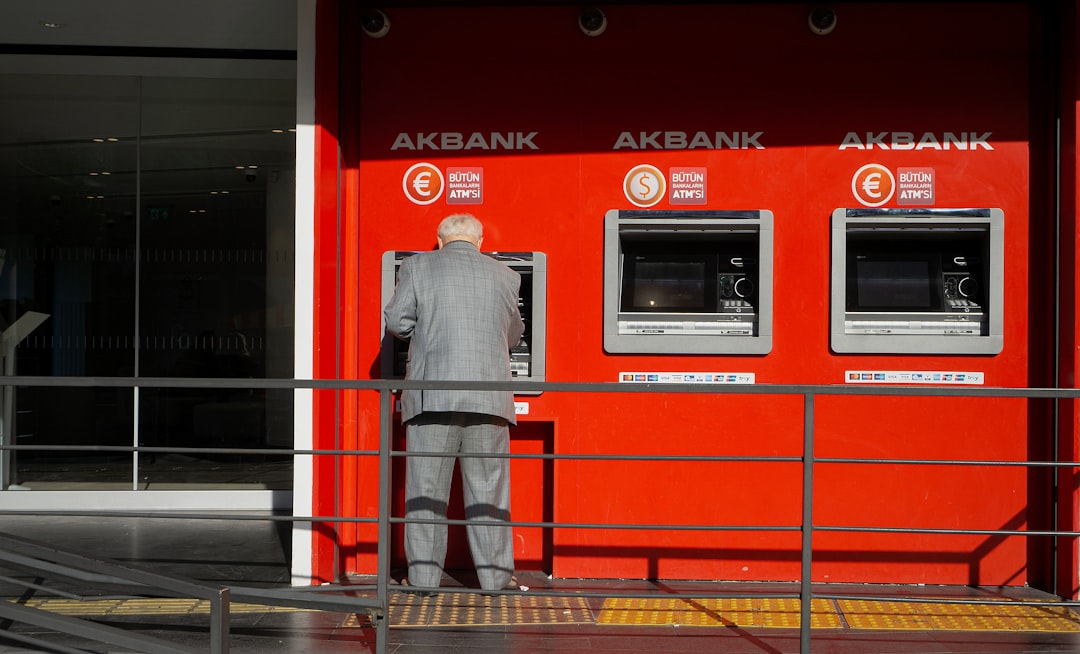In recent years, you may have noticed a growing skepticism towards traditional banking institutions. This erosion of trust is not merely a fleeting sentiment; it reflects deep-seated concerns about the integrity and reliability of banks. As you navigate your financial landscape, you might find yourself questioning the motives of these institutions that once held a revered position in society.
The reasons behind this decline in trust are multifaceted, ranging from economic crises to ethical lapses within the industry. As you delve deeper into the factors contributing to this phenomenon, it becomes clear that the implications extend beyond individual dissatisfaction.
The erosion of trust in banks has far-reaching consequences for the economy and society as a whole, influencing everything from consumer behavior to regulatory frameworks. Understanding this complex landscape is essential for anyone looking to navigate the modern financial world.
Key Takeaways
- The 2008 financial crisis significantly impacted trust in banks, leading to a decline in consumer confidence.
- Scandals and unethical behavior in the banking industry have further eroded trust, prompting consumers to seek alternative financial services.
- Government regulation has played a role in the decline of trust in banks, but technology has also enabled the rise of decentralized finance.
- The decline in trust in banks has implications for the economy and society, as consumers shift their behavior and financial decision-making.
- Rebuilding trust in banks will require transparency, accountability, and addressing the challenges and opportunities presented by decentralized finance.
The 2008 financial crisis and its impact on trust
The 2008 financial crisis serves as a pivotal moment in the narrative of trust in banking. You may recall the widespread panic that ensued as major financial institutions collapsed, leading to a global recession. This crisis was not just a financial disaster; it was a profound betrayal of public trust.
Many people, including yourself, watched as banks that had been deemed “too big to fail” received government bailouts while ordinary citizens lost their homes and savings. This stark contrast between the treatment of institutions and individuals left a lasting scar on public perception. In the aftermath of the crisis, you might have felt a sense of disillusionment with the banking system.
The very institutions that were supposed to safeguard your financial well-being were revealed to be riddled with greed and mismanagement. As you observed the fallout, it became evident that trust had been irrevocably damaged. The crisis not only led to immediate financial losses but also fostered a culture of skepticism that persists today.
You may find yourself questioning whether banks can truly act in your best interest or if they are primarily driven by profit motives.
Scandals and unethical behavior in the banking industry

The 2008 crisis was not an isolated incident; it was merely one chapter in a long history of scandals and unethical behavior within the banking industry. You may have heard about various high-profile cases involving fraudulent practices, such as the manipulation of interest rates or the mis-selling of financial products. These scandals have further eroded your trust in banks, as they reveal a pattern of behavior that prioritizes profit over ethical considerations.
As you reflect on these events, it becomes clear that the banking sector has often operated in a culture of impunity. The lack of accountability for those involved in unethical practices can leave you feeling frustrated and disillusioned. When you see executives receiving hefty bonuses despite their institutions’ failures, it reinforces the notion that banks are more concerned with their bottom line than with serving their customers.
This ongoing cycle of scandal and mistrust creates an environment where you may feel compelled to seek alternatives to traditional banking services.
Technology and the rise of alternative financial services
| Metrics | 2015 | 2016 | 2017 | 2018 |
|---|---|---|---|---|
| Mobile banking users (millions) | 800 | 1,000 | 1,200 | 1,500 |
| Online lending market value (billion USD) | 20 | 30 | 40 | 50 |
| Blockchain transactions (millions) | 100 | 200 | 300 | 400 |
In response to the declining trust in banks, you may have noticed a surge in alternative financial services powered by technology. Fintech companies have emerged as viable options for consumers seeking more transparent and user-friendly financial solutions. These platforms often prioritize customer experience and offer services that are more aligned with your needs, such as lower fees and greater accessibility.
As you explore these alternatives, you might find that they provide a refreshing contrast to traditional banking practices. Many fintech companies leverage technology to enhance transparency, allowing you to track your spending and manage your finances more effectively. This shift towards digital solutions not only empowers you as a consumer but also challenges traditional banks to adapt or risk becoming obsolete.
The rise of alternative financial services represents a significant turning point in how you engage with your finances, fostering a new era of competition that could ultimately benefit you.
The role of government regulation in the decline of trust
Government regulation plays a crucial role in shaping the banking landscape, and its impact on trust cannot be overlooked. In the wake of the 2008 financial crisis, regulatory bodies implemented measures aimed at preventing future disasters. However, you may have observed that these regulations often fall short of restoring public confidence.
The perception that regulations primarily serve the interests of banks rather than consumers can further exacerbate your distrust. As you consider the role of government oversight, it becomes evident that effective regulation is essential for rebuilding trust in banks. You may feel that regulators need to prioritize consumer protection and hold financial institutions accountable for their actions.
When regulations are perceived as weak or ineffective, it can lead to a sense of helplessness among consumers like yourself, who are left vulnerable to potential abuses within the system. Striking a balance between fostering innovation and ensuring accountability is crucial for restoring faith in the banking industry.
Implications for the economy and society

The erosion of trust in banks has significant implications for both the economy and society at large. As you navigate your financial decisions, you may find yourself more hesitant to engage with traditional banking institutions, opting instead for alternative solutions or even cash transactions. This shift can lead to decreased investment in banks, ultimately affecting their ability to lend and support economic growth.
Moreover, when trust in banks diminishes, it can create a ripple effect throughout society. You might notice that individuals become more risk-averse, leading to reduced consumer spending and investment. This cautious approach can stifle innovation and entrepreneurship, hindering economic progress.
As trust erodes, so too does the willingness of individuals to participate fully in the financial system, which can have long-term consequences for economic stability and growth.
The shift towards decentralized finance
In recent years, you may have become aware of the growing interest in decentralized finance (DeFi) as an alternative to traditional banking systems. DeFi leverages blockchain technology to create open-source financial services that operate without intermediaries like banks. This shift represents a fundamental change in how you can access financial services, offering greater autonomy and control over your assets.
As you explore DeFi options, you might appreciate the transparency and security that blockchain technology provides. Transactions are recorded on a public ledger, allowing you to verify information independently without relying on a central authority. This decentralized approach aligns with your desire for greater accountability and trustworthiness in financial transactions.
However, it’s essential to remain cautious; while DeFi offers exciting possibilities, it also comes with risks that require careful consideration.
The impact on consumer behavior and financial decision-making
The erosion of trust in banks has undoubtedly influenced your behavior as a consumer. You may find yourself more inclined to research alternative financial options or seek out institutions that prioritize transparency and ethical practices. This shift in mindset reflects a broader trend among consumers who are increasingly demanding accountability from financial service providers.
As you make financial decisions, you might prioritize companies that align with your values and demonstrate a commitment to ethical behavior. This change in consumer behavior can drive competition within the industry, prompting traditional banks to reevaluate their practices and improve their offerings. By choosing where to invest your time and money based on trustworthiness, you play an active role in shaping the future of finance.
Rebuilding trust in banks: Challenges and opportunities
Rebuilding trust in banks is no small feat; it requires concerted efforts from both financial institutions and regulators alike. You may recognize that while challenges abound, there are also opportunities for banks to regain your confidence. Transparency is key; when banks openly communicate their practices and policies, it fosters an environment where consumers feel informed and empowered.
As you observe changes within these institutions, you may be more willing to engage with them again if they demonstrate a genuine commitment to serving their customers’ best interests. By embracing innovation and adapting to changing consumer expectations, banks can position themselves as trustworthy partners in your financial journey.
The role of transparency and accountability in restoring trust
Transparency and accountability are essential components in restoring trust within the banking industry. As you navigate your financial choices, you likely seek out institutions that prioritize clear communication about their products and services. When banks provide accessible information about fees, risks, and decision-making processes, it empowers you as a consumer to make informed choices.
Additionally, accountability measures must be put in place to ensure that banks are held responsible for their actions. You may feel more confident engaging with institutions that demonstrate a commitment to ethical practices and take swift action against wrongdoing. By fostering an environment where transparency is valued and accountability is enforced, banks can begin to rebuild the trust that has been lost over time.
The future of trust in the banking industry
As you reflect on the current state of trust in the banking industry, it’s clear that significant challenges lie ahead. However, there is also hope for a future where trust can be restored through concerted efforts from both consumers and financial institutions alike. By prioritizing transparency, accountability, and ethical behavior, banks have an opportunity to regain your confidence and reshape their relationship with customers.
The future of trust in banking will likely be shaped by ongoing technological advancements and evolving consumer expectations. As you continue to navigate this landscape, remember that your choices matter; by supporting institutions that align with your values, you contribute to a more trustworthy financial ecosystem. Ultimately, rebuilding trust will require collaboration between all stakeholders involved—banks, regulators, and consumers—to create a system that prioritizes integrity and serves the best interests of society as a whole.
In recent years, trust in banks has been on the decline, a trend that can be attributed to several factors including financial scandals, data breaches, and a perceived lack of transparency. An insightful article on this topic can be found on Hey Did You Know This, which delves into the reasons behind the erosion of trust in financial institutions. The article highlights how these issues have led to increased skepticism among consumers, who are now more cautious about where they place their financial assets. For a deeper understanding of this phenomenon, you can read the full article by visiting this link.
WATCH THIS! 🏦 1 Billion Dollar Scam That Banks Won’t Stop 🤑
FAQs
What is causing the falling trust in banks?
There are several factors contributing to the falling trust in banks, including financial scandals, unethical behavior, lack of transparency, and the global financial crisis of 2008.
How do financial scandals affect trust in banks?
Financial scandals, such as fraudulent activities, money laundering, and mis-selling of financial products, erode public trust in banks and financial institutions. These scandals create a perception of dishonesty and unethical behavior within the industry.
What role does lack of transparency play in the falling trust in banks?
Lack of transparency in banking practices, including hidden fees, complex financial products, and opaque decision-making processes, leads to a lack of trust among consumers. When customers feel they are not fully informed about the services and products they are using, it undermines their confidence in the banking system.
How did the global financial crisis impact trust in banks?
The global financial crisis of 2008, which was caused by risky lending practices and the collapse of major financial institutions, significantly damaged public trust in banks. The widespread economic turmoil and loss of savings led to a deep-seated distrust of the banking industry.
What are the consequences of falling trust in banks?
Falling trust in banks can have serious consequences, including reduced customer loyalty, increased regulatory scrutiny, and a shift towards alternative financial services. It can also lead to a decline in investments and a negative impact on the overall economy.
